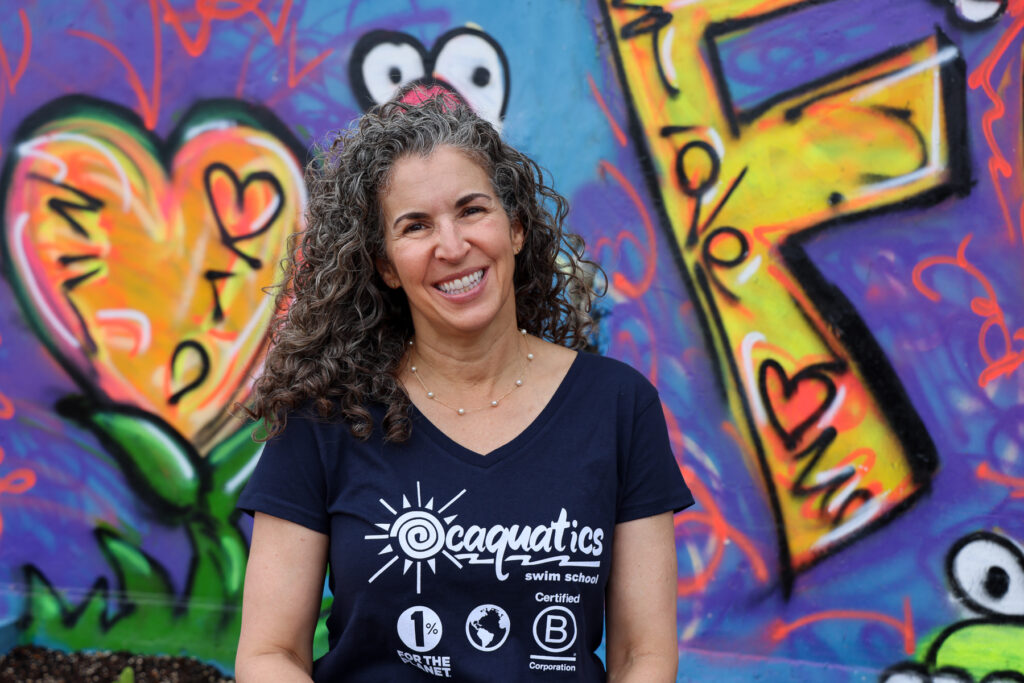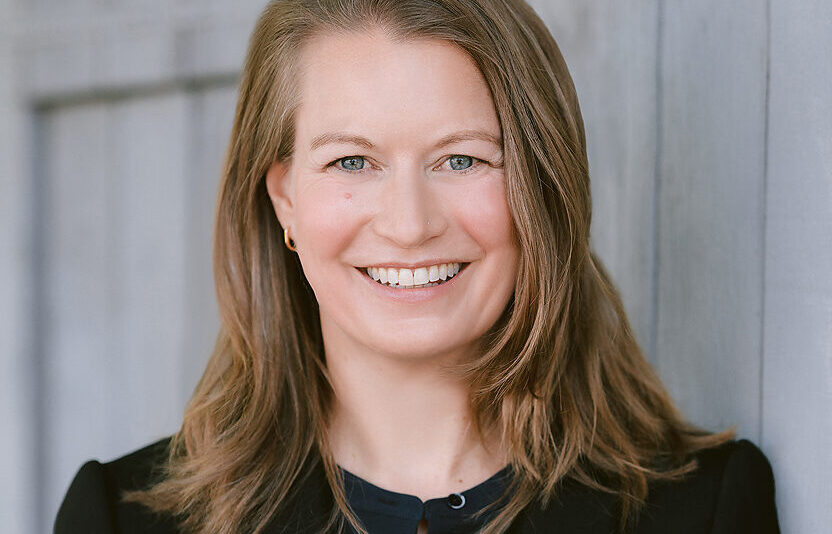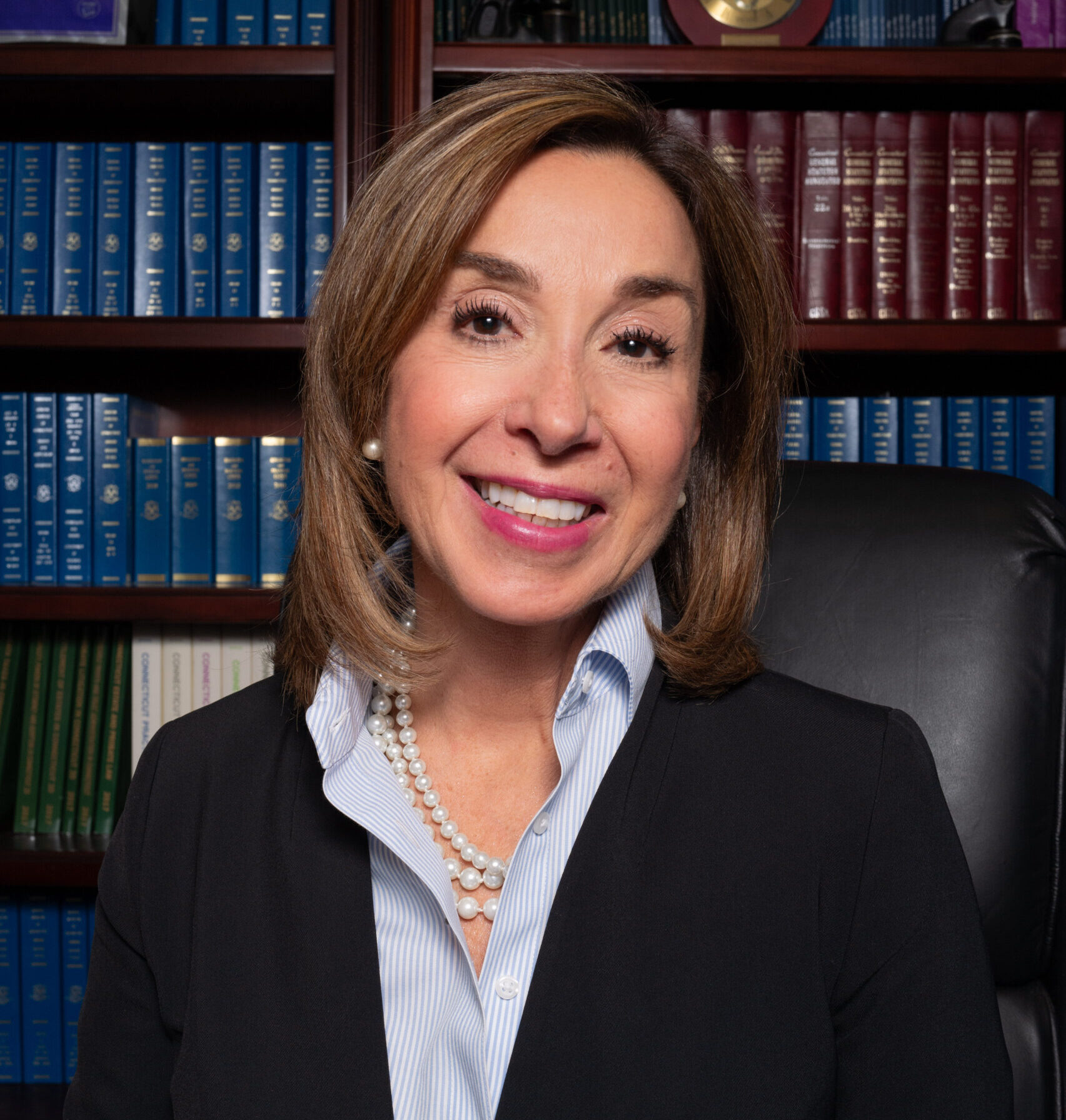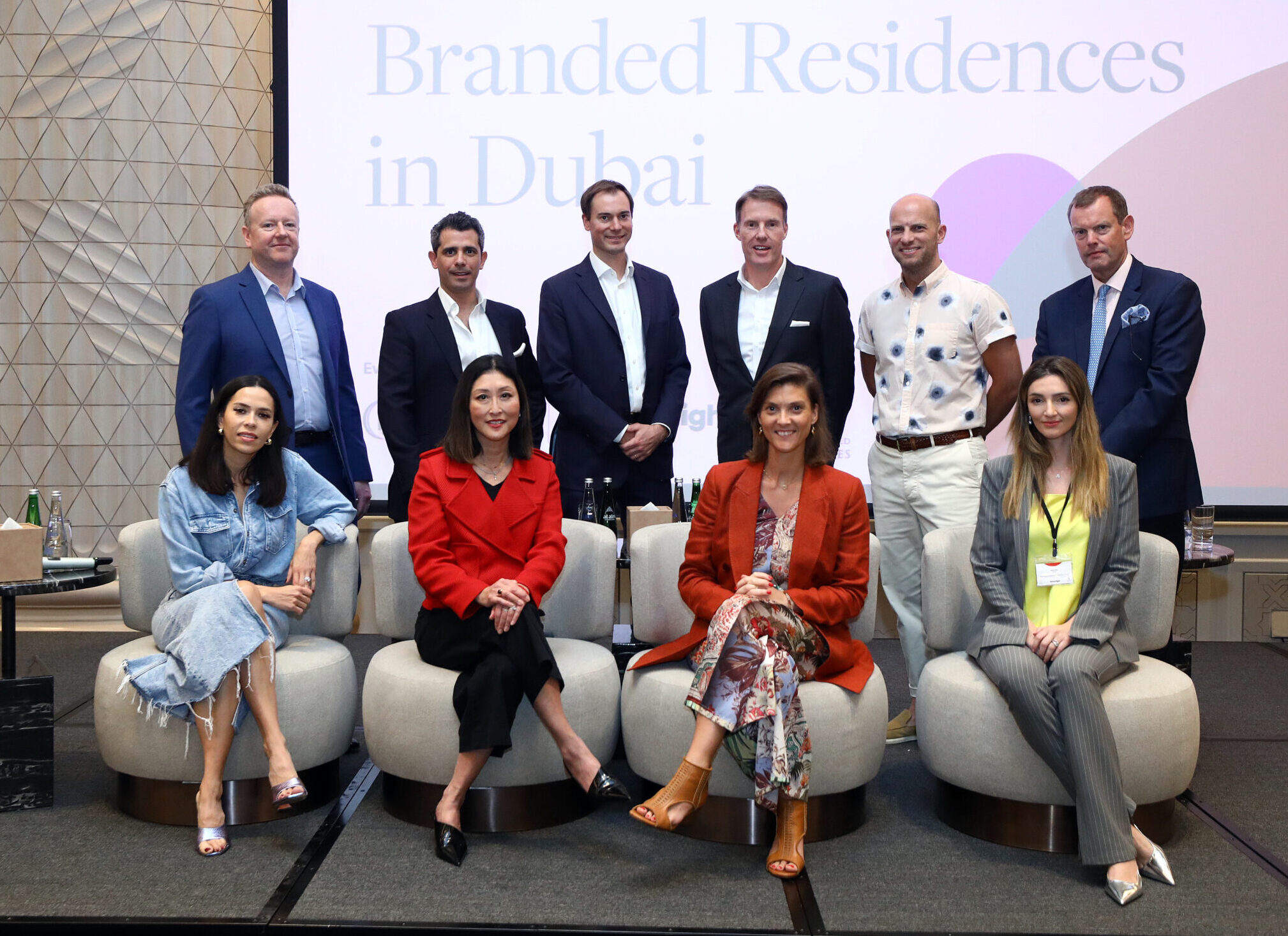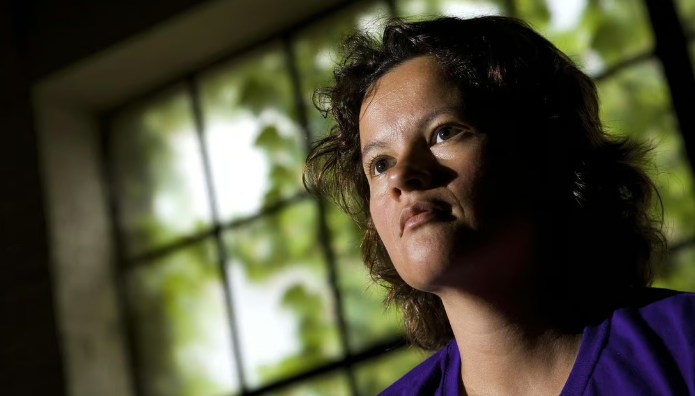The Story of a Kind-Hearted Dreamer
and the Swim School Empire She Founded: Ocaquatics
Miami, Florida – Miren Oca is a perfect example of being strong, committed, and really generous. She’s the living embodiment of giving back. This interview took place right after she hit an amazing milestone with her company, a game-changer for her employees’ lives. Hearing it firsthand made me proud. I hope this interview inspires many other business owners to do the same.
Born into a multicultural family with roots in Louisiana, Spain, and Cuba, Miren’s journey is a testament to her relentless work ethic and compassionate nature. Initially embarking on a path to become an orthopedic surgeon, her life took an unexpected turn when she became a mother at 19. This pivotal moment did not deter her; instead, it reshaped her trajectory, leading her to entrepreneurship and community service.
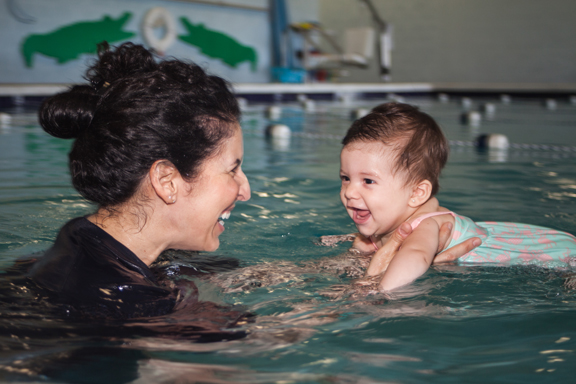
Starting humbly by teaching swimming in backyard pools, Miren’s innate teaching talent and steadfast dedication nurtured her modest enterprise into a flourishing business empire with five indoor swimming facilities across Miami, touching the lives of thousands weekly. Her venture is a commercial triumph and a lighthouse of safety and education in her community.
Miren’s essence extends beyond her business prowess; her soul is woven with generosity and a commitment to uplift others. Her transformative vision has morphed her business into a beloved employee-owned sanctuary, echoing the ethos of legendary entities like Patagonia, championing inclusivity and narrowing the wealth divide. Her actions testify to her belief in the symbiotic relationship of mutual success, mirroring Zig Ziglar’s philosophy: “Help people get what they want; they’ll help you get what you want.”
After three decades of tenacious leadership, Miren stands as a colossal figure in Miami’s business landscape, steering a company that proudly boasts 165 dedicated team members across five distinct locations. Her leadership transcends the ordinary, with her company achieving the esteemed Certified B Corporation status, showcasing her unwavering commitment to nurturing her team and cherishing the planet. In her splendid journey of growth and giving, Miren Oca remains a beacon of hope and transformation, proving that the essence of true power lies in the generosity of spirit and a steadfast dedication to the greater good.
We discussed everything with Miren Oca from her early days when no one believed in her vision. At that time, no company was willing to offer her a loan. After 30 years, banks and companies are eagerly chasing her for collaboration. Miren’s journey is a testament to her indomitable spirit, consistent hard work, and commitment to prioritizing her clients while raising her son. Her resilience in overcoming adversity has led to remarkable success.
During our conversation, Miren shared a poignant memory of visiting bookstores with her son, reading together, and then leaving the books behind because she couldn’t afford to buy them. Now, she can purchase hundreds or thousands of books without a second thought. This story resonated deeply with me, reminding me of an interview in Turkey where I was asked about the meaning of success. I responded that “being able to buy a book without worrying about its price signifies true success, as it reflects financial security and intellectual freedom.” Seeing myself in Miren’s past experiences with books was a moment of connection. It’s often said that a person who values books and cares for the environment inherently possesses a good heart. Miren Oca embodies this belief to its fullest.
I am happy to introduce her.
Please meet incredible Miren Oca.
Pinar Ozyigit
[email protected]
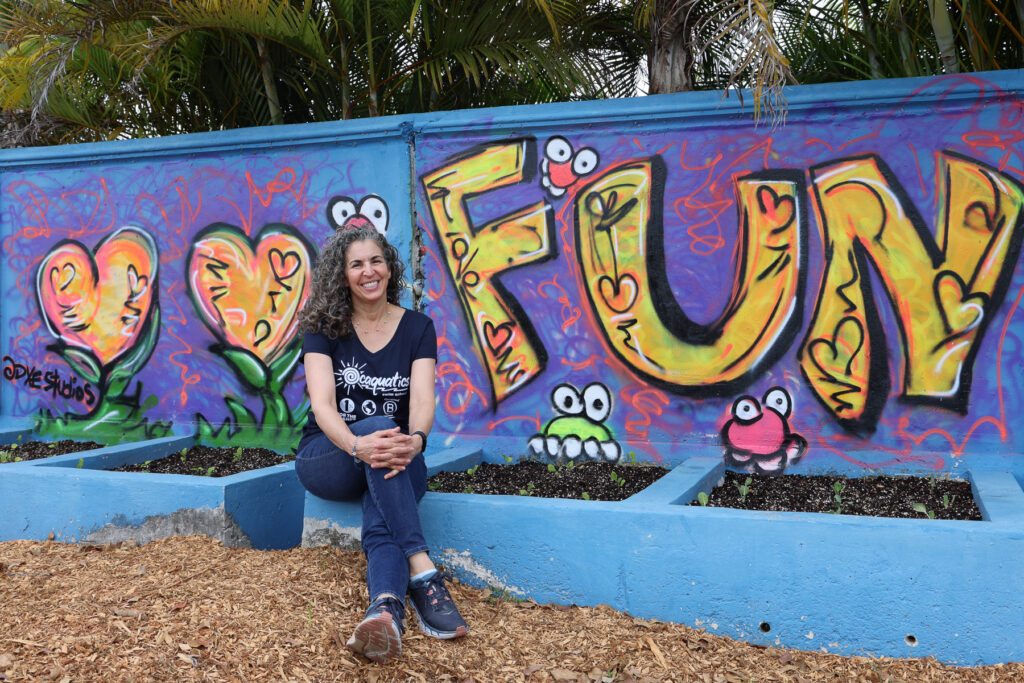
Let’s start with your roots. Could you share where you’re from and the story behind your name?
I was born in Louisiana, with a diverse background, as my father was from Spain, and my mother was from Cuba. They gave me the name Miren Edurne from the Basque language Euskara, which translates to Marie Nieves in Spanish. However, people in the US refer to me as Miren.
I love it. And before diving into your entrepreneurial journey, what was your initial career path?
My initial career path was in the medical field. I attended Tulane University, pursuing a degree in biochemistry with the aspiration to become an orthopedic surgeon. However, life took an unexpected turn when I became pregnant at 19, altering my career trajectory and eventually leading me to start my own business.
How do you feel about being a mom at a young age now?
I probably wasn’t the most grateful person the day I found out I was pregnant. But now I’m incredibly grateful because I have an amazing son who is now 32 years old. I chose to leave Tulane University and move to Miami because my family was here in Miami.
How did your business journey start, and what were the steps after this unexpected change in your life?
My business started with necessity and practical skills. After moving back to Miami to be closer to family, I began teaching swimming lessons, which I knew well and provided a stable income. Then, after I had my son, I continued teaching swimming lessons, but I went back to school, finished my biology degree, and decided to wait to attend medical school when my son was older. But it never happened because my little business started to grow.
Can you walk us through the evolution of your business and the significant challenges you faced?
The business expanded from teaching swimming lessons in backyard pools to hiring additional instructors and operating in multiple locations. The biggest challenge was the instability and limitations of using outdoor pools, especially with the unpredictable weather in Miami. This led to the pivotal decision to construct an indoor swim school. This was a totally outside-the-box idea in Miami at the time. Now, the business is 30 years old, and we have 5 indoor warm water locations year-round. It’s gone by in a flash, but it’s also been a long and hard road. It was complicated when I started the business 30 years ago because I did not have financial resources or experience. But I loved what I did, and I believed in what I was doing. I worked hard and never gave up. Because the business kept growing, I started hiring, which helped the company grow even more.
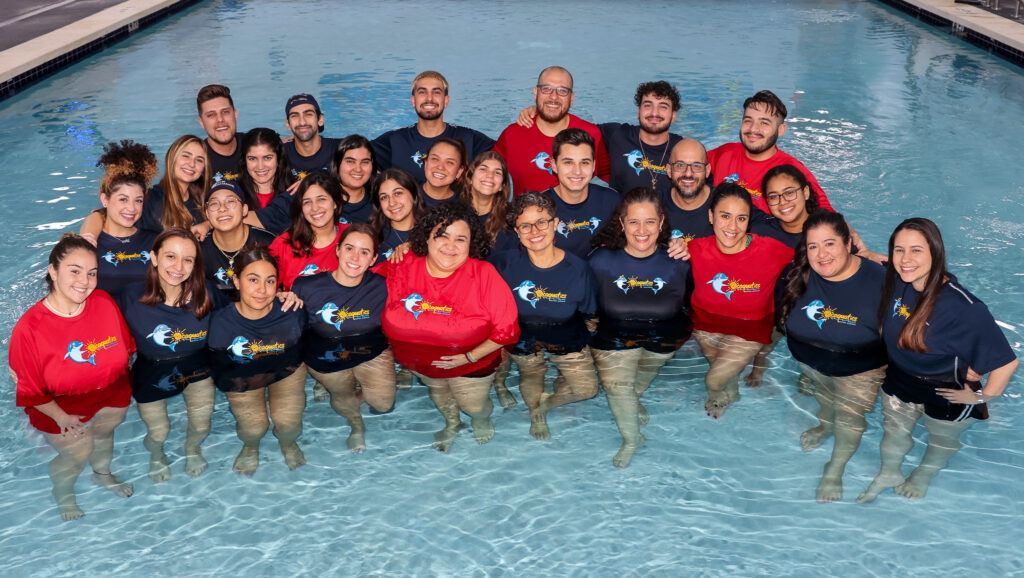
How did you decide to make your indoor pool?
I started individually in backyard home swimming pools. I would go to your home, teach your children, and then I would go to your neighbor’s home, teach their children, and so on. It worked since we are in Miami, where it is warm most of the year. So, one day, I decided to hire a few part-time college students to help, and the business started growing, and more people wanted lessons. I decided to find a pool so people could come to us. Driving home one day, I stopped by a little hotel pool in South Miami, and they agreed to allow us to teach in their pool in exchange for swimming lessons and water aerobics classes for the guests. That gave me the confidence to look for other pools, and it started our journey in various country clubs, hotel pools, and even the pool at the University of Miami. The business kept growing and growing and growing, but the problem was that I was building my little empire on sand because if we got too busy, management would get upset and kick us out of these locations. We also continued to have challenges because of the weather. So, this is when I started a new search for a location that would allow me to put a pool inside their building. It was very complicated, but I finally found somebody to let me do it.
Wow. This is incredible. So, how did you manage the financial hurdles of building your first indoor pool?
Finding a place that would allow me to put a pool in their building was the first challenge. But I finally found a landlord who would let me do it. I rented a building, put a hole in the middle of the building, and started to build the pool in 2008. We finally opened in July 2009. Lack of finances was a huge hurdle to overcome in my career. Despite having a successful business, banks were reluctant to lend money for such a unique project. I resorted to mortgaging my home and using personal savings and credit cards to finance the construction. When I look back, it was unbelievable and risky, but I was never scared because I believed in what I was doing.
We could never have grown the business without our amazing team of people.
Miren Oca
What happened after you opened the first pool? How large has your business grown, and what impact does it have today?
It took 15 years in business to get our first pool open and running. Today, the business has five indoor, warm water swimming facilities in Miami, offering 6,500 lessons weekly with a staff of 165 extraordinary people on our team.
We could never have grown the business without our amazing team of people. How we care for people is very important to us and is one of our guiding principles. We always say that “our first customers are our team members.” If we care for them, they care for our families and the business.
What do you mean by that? Can you explain?
Well, it’s evolved over the years, but in the beginning, it was just about being a friendly and kinder employer. Since we’ve grown and had more success, we’ve been able to offer more benefits and opportunities to our team members, such as personal and professional development.
And, I can tell you something that might mess up your entire story: officially, today, on March 1, 2024, we transitioned to an employee-owned company. So now my employees are officially the owners of the company. And I am so proud.
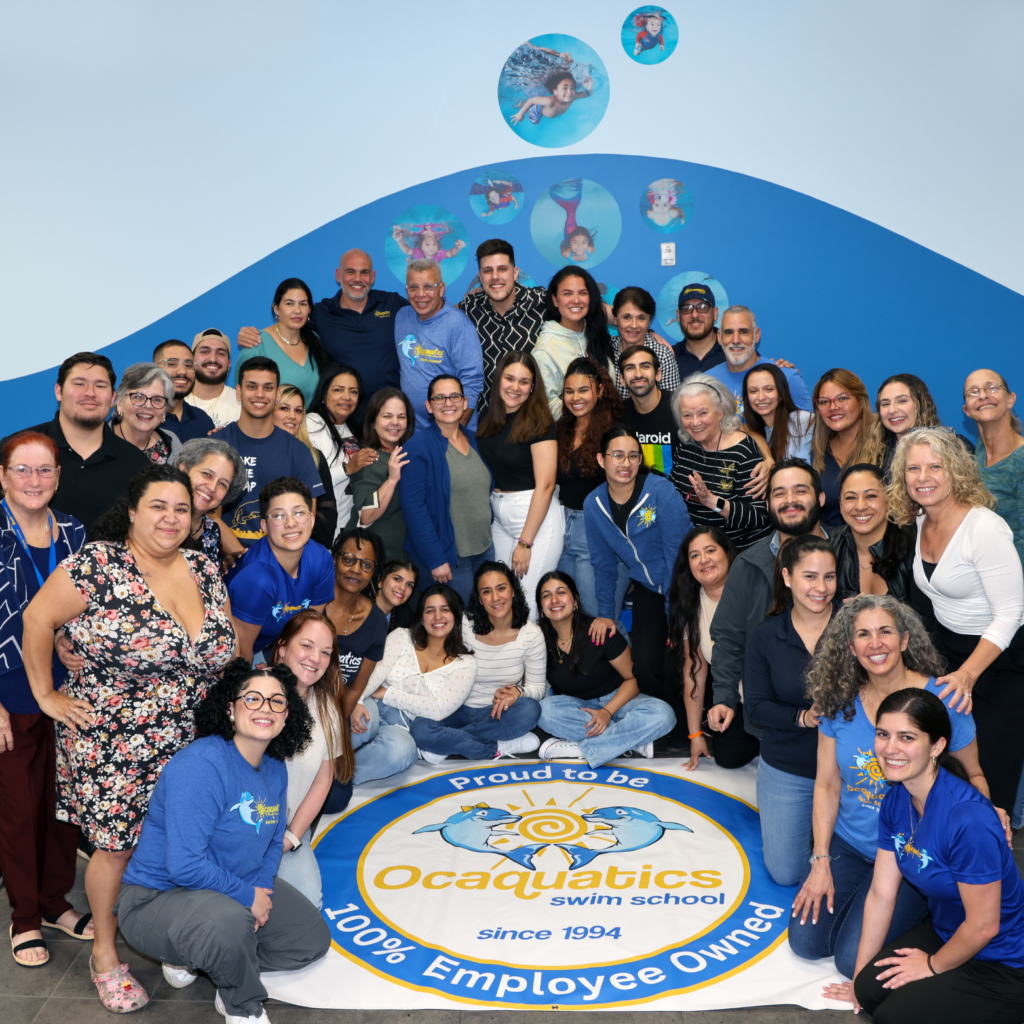
Hold on there. Did it happen today? Transitioning to employee ownership is a significant step. Congratulations. I am thrilled to hear that. Please tell me what motivated you to make this change.
I’ve been thinking about it for a few years and wondering how to structure it best. I’ve researched every example of ownership, from profit sharing to phantom stock to having people buy into the company. We went down the road of Employee Stock Ownership Plans (ESOP). I did a lot of research on that, and we did our valuation and a feasibility study. But then I found out about an Employee Ownership Trust. And while there are fewer than 30 in the United States, it’s very common in the United Kingdom.
This decision was driven by a desire to reward and empower the employees who contributed to the business’s success. After researching various models, the employee ownership trust model stood out as the best fit, allowing employees to gain ownership through commitment and service.
What is your son thinking about this decision?
He thinks it’s pretty amazing. Over the years, he worked with Ocaquatics and knows that we are a values-aligned and conscious business. I told him early on that I was thinking of moving in this direction and gave him veto power. But he also knows that this aligns with how the company has evolved. We are a certified B corporation. We’re very focused on Conscious Capitalism. We aim to make a positive difference for our team members, families, community, and planet. So we want to ensure our team members are better because they worked with us.
When my son was very little, I could not afford books. So he and I would sit in the bookstore and read books all weekend. He would read his books, I would read mine, but then we’d leave them because we couldn’t afford to buy them.
Miren Oca
This is mind-blowing and must be an example for many businesses. You are unbelievable. I am proud to hear from you. I want to ask you about leadership because it is crucial in business. How have you developed your leadership style over the years? You studied biology, but you evolved. How did you learn everything you know? What was your biggest challenge? Can you tell me about this?
Books. I am a big reader and have learned so much from books. When my son was very little, I could not afford books. So he and I would sit in the bookstore and read books all weekend. He would read his books, I would read mine, but then we’d leave them because we couldn’t afford to buy them. And now everything is different. I buy lots of books! We even have a book club with our leadership team, and we read several books together yearly.
I learn by reading and listening to audiobooks and podcasts. But I also enjoy learning from other people and mentors.
For example, when researching this employee ownership opportunity, I asked 50 different employee-owned companies how they did it and why they modeled it the way they did. I wanted to hear about everyone’s experience.
My team is 165 people, and 47 team members are qualified to be owners. Ownership comes after a team member has worked 2500 hours. They don’t have to buy or pay for ownership in the company. That’s how it works with an employee ownership trust. They “buy” their way in through dedication through hours worked. This means that any profit the company makes after the debts are paid at the end of the year goes to the employee-owners.
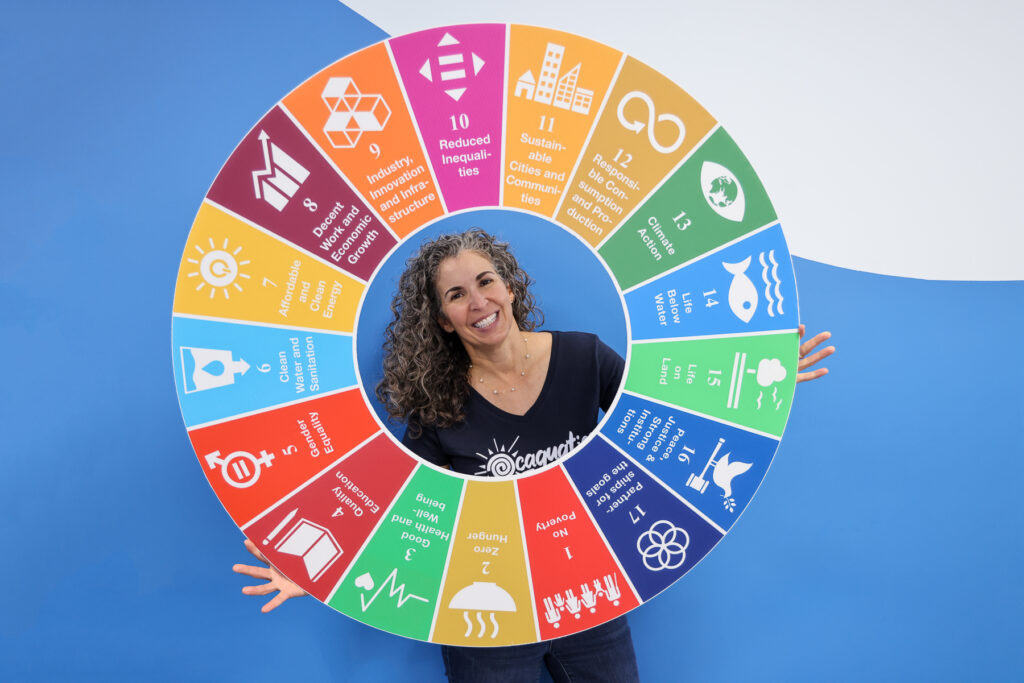
What was your biggest struggle creating an incredible company culture with exemplary leadership?
My leadership style has evolved over time; we have practiced servant leadership for many years. As servant leaders, as we grow in our leadership positions, we are more responsible to the people we work with. This leadership style is sometimes more complex than traditional leadership and is not what is practiced in typical businesses. Because of this, we spend extra time developing our team members on their leadership journey.
Servant leadership is the best way to care for and serve others. By serving people, you help them get what they want. There’s a quote by Zig Ziglar. “If you help people get what they want, they’ll help you get what you want.” This is the complete opposite of other types of leadership, such as the Jack Welch type of leadership from GE. I decided we wanted to be servant leaders. And I had to learn that. I had to figure out what kind of leader I wanted to be. Reading, listening, and learning helped me grow in the type of leadership I wanted to exemplify, and all of this has helped me on my journey.
Can you tell me about your branding journey? Because, you know, everyone is thinking about entrepreneurship and creating something, and they need help knowing where to start.
Well, it’s funny. I would never have named the business “Ocaquatics” with my last name, knowing I would be here 30 years later with the same company. I originally planned to have this business for a few years until I went to medical school. But now, here we are. I don’t want the swim school to be about me; I want it to be about our fantastic team who make the magic happen daily. They help make families safer around the water every single day. They are the ones who lead with environmental and social responsibility. They are the ones who help us live our fantastic culture. And now, I think our culture is a part of our brand and what we are known for in the community.
What advice can you offer for women aspiring to start their own business based on your experience?
I would give this advice to all entrepreneurs.
Always do what is right over what is easy.
Run your own race. It is ok to be different. In fact, being different is good.
Put on your own oxygen mask first. You cannot take care of everything that you have to do if you do not take care of yourself.
It would not have worked for me to open a business I did not know anything about. So, I did what I knew and what I loved so deeply. I was passionate about working with children and making families safer around the water, so I built my business on that.
Your business should reflect something you genuinely care about and see a need for. This alignment of passion and purpose will sustain you through the challenges (and there will be lots of challenges!) and drive the business’s success.
You have to find something that resonates with you and gives you purpose. We teach swimming and provide life-saving skills. So, we have a great purpose in what we do. But we also intend to care for our families, team members, community, and planet. So we even have more purpose.

Reflecting on your journey, how do you perceive failures and their role in your growth?
I view failures as essential learning moments. Each mistake we make provides insights and lessons integral to personal and business growth. Embracing failures as part of the journey has been vital in refining our business model and strategies over time.
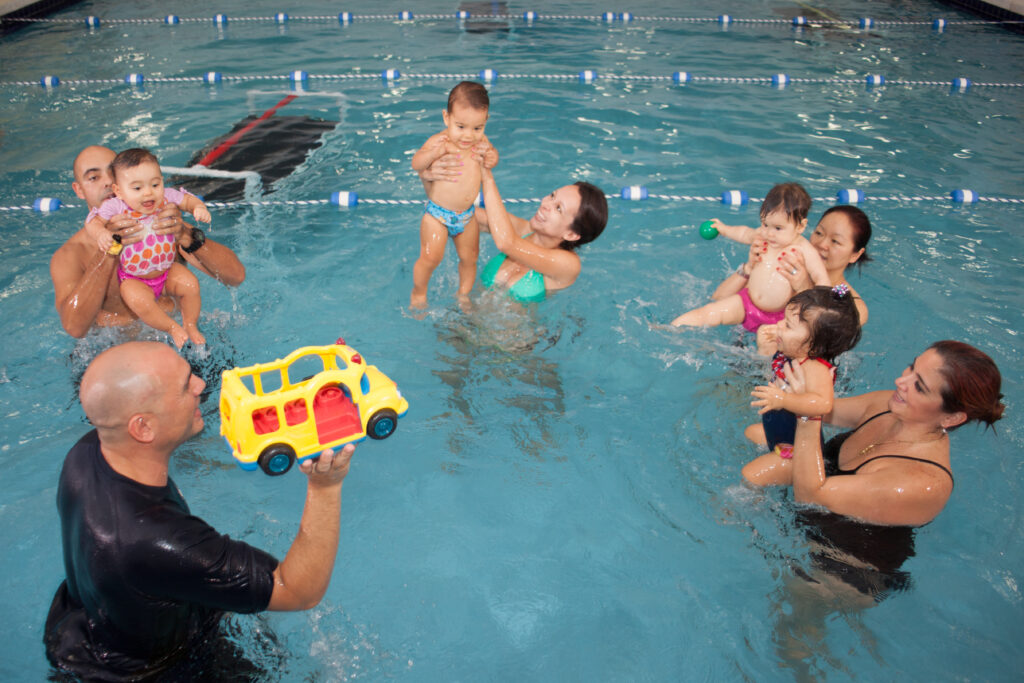
And I have had hundreds of learning moments! Failure is research. We must take valuable lessons from our experiences and improve upon them. If you make the same mistake twice, then that’s a problem.
Learning moments are part of the journey of business. There’s a quote by Steve Jobs, I’m paraphrasing, that says, “Overnight success takes a very long time.” Still, it seems so many people look at me and say, “Oh, yes, it’s easy.” But it wasn’t really. We make it look easy, but it takes work. We’ve made so many mistakes, and we’ve had so many learning opportunities. We’ve grown so much. And that’s just part of the process. Whenever you mess up, it’s okay if you take the lesson from it and move on, you know, because some people make a mistake and then live with it.
Finally, could you elaborate on your company’s community and environmental initiatives and their importance to your business philosophy?
Our vision is to make a positive difference in our families, our team members, our community, and the planet. Our commitment to making a positive impact extends beyond our business operations. We are a certified B Corporation, prioritizing sustainable practices and community wellbeing.
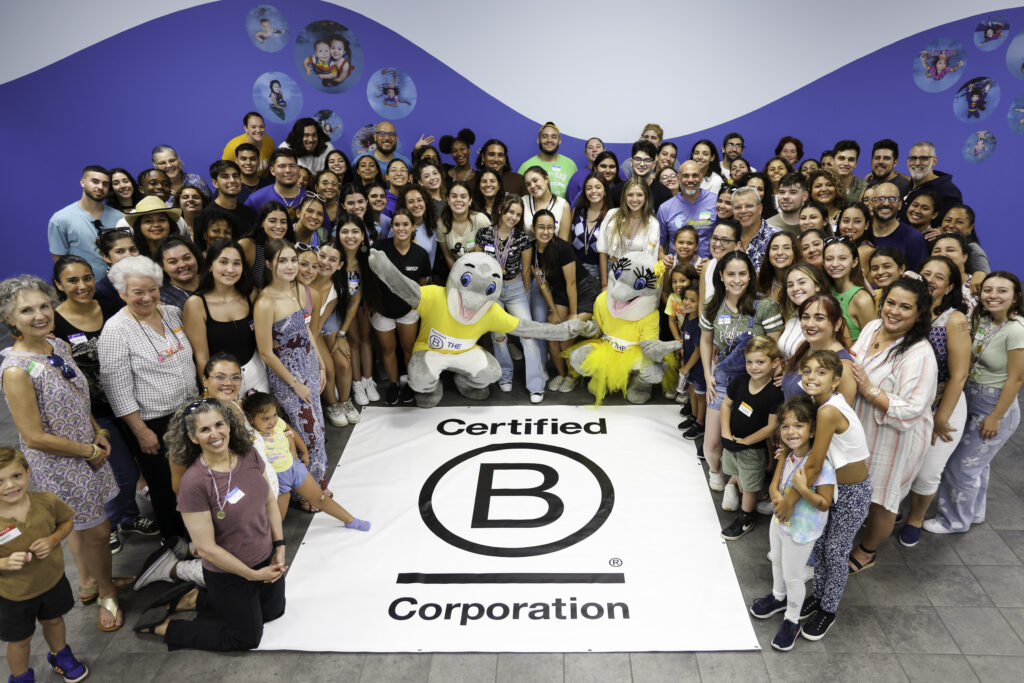
We were the planet’s first certified B Corp swim school. We are also proud members of Conscious Capitalism and 1% for the Planet. We believe in using business as a force for good. And that means more than just making money for the shareholders. It’s all about making money for all the stakeholders and positively affecting the community. And now, as an employee-owned company, we can live our legacy to an even greater degree.
Connect with Miren Oca
Visit Ocaquatics.com
Follow Ocaquatics
Instagram Facebook YouTube LinkedIn



